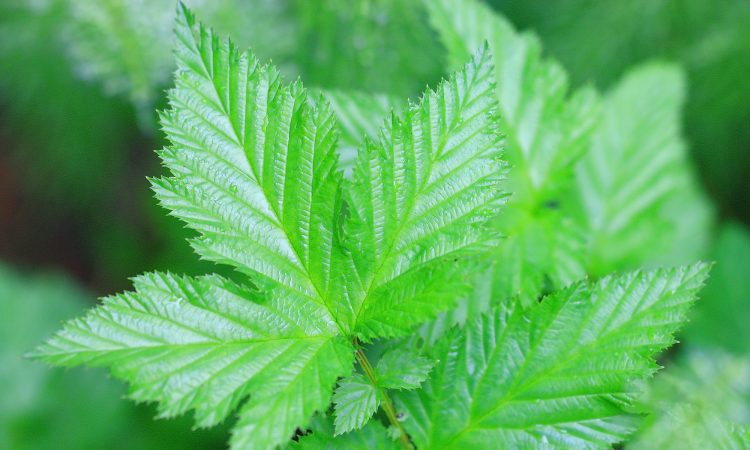
The Japanese are some of the longest-lived people on Earth, and many experts give the credit to their diet and readily available medicinal herbs.
But what if the Japanese are consuming a native plant that the west is unaware of until now?
Healers in both Japan and China have used ashitaba (Angelica keiskei koidzumi) for hundreds of years. Recent scientific research is validating how effective this bitter herb (closely related to carrots) can protect your health.
We know its use as a medicine goes back to at least 1578 when Li Shizhen, a famous Chinese doctor, compiled the Chinese Compendium of Materia Medica.
People in Japan, China and India drink it as a healthy tea. Koreans add it to vegetable juice. Many take it as a supplement.
In Japan, ashitaba is added to ice cream, noodles, candy and fruit drinks.
Ashitaba is also called “Tomorrow’s Leaf” because it grows so fast. Cut off a leaf today, and tomorrow you’ll have a brand new leaf replacing it.
This Flavonoid Protects Your Cells
That’s 4,4′-dimethoxychalcone (DMC). One of DMC’s major effects is to induce autophagy.
Autophagy is the process where your body “cleans up” your cells. It kills old and damaged cells, then recycles the components, along with other biological debris.
That creates new, young and efficient cells.
It’s kind of like you’re a steel plant full of rusty, broken-down and dirty equipment, along with a lot of waste steel just lying around, getting in the way.
With autophagy, you clean out the waste, dismantle the old machinery and re-assemble it so it’s brand new again.
A major cause of aging appears to be your body’s inability to keep up with the need for autophagy.
Therefore, your organs become inefficient, and your body runs downhill.
By speeding up autophagy, the DMC in ashitaba makes you biologically younger.
Autophagy is also one of the major benefits of fasting, so ashitaba promotes autophagy without going hungry.
DMC particularly protects your living cells. Studies on animals have shown it shields livers from alcohol damage.
Ashitaba Proven to Increase Life Expectancy 20%
That’s life expectancy in nematodes and fruit flies, not people, but it’s still nothing to sneeze at.
It’s not a magic longevity potion for people, but nothing is. Increase your autophagy, however, and at the very least you’ll feel better and be at less risk of chronic disease.
Plus, it has proven health benefits for high blood pressure, diabetes, bacterial infections, heartburn, fatty liver and stroke.
Scientific studies show it induces apoptosis in cancer cells. That is, it triggers their death.
Reduction in Visceral Fat
In one study, 26 slightly obese men and women were given a trial of ashitaba chalcone (a component of ashitaba).
Half of them took a 200 mg capsule every day after dinner for 56 days. They lost significant amounts of weight, including visceral fat (the unhealthy kind).
The Sap Contains Chalconoid Phytonutrients
They’re being studied for their antifungal, antitumor, antibacterial and anti-inflammatory properties.
Ashitaba also contains more common, but still important, phytonutrients including: chlorophyll, lutein, alpha-carotene, beta-carotene, quercetin and catechin.
Despite Online Misinformation, Ashitaba is NOT a Source of Vitamin B12
There are many good reasons to take ashitaba, so I was surprised to see articles and videos claiming it’s a good source of Vitamin B12.
Certain bacteria produce Vitamin B12, not plants or animals.
In the past, animals were a good source of B12 because the bacteria lived within their guts. That’s why some people claim it’s unhealthy not to eat meat. However, thanks to factory farming, this is no longer so true.
Now, livestock is injected with B12.
Despite that, many meat-eaters, as well as vegans and vegetarians, are deficient in this vital nutrient.
Don’t take ashitaba believing it’s a substitute for supplementing with B12.
Take ashitaba because it’s so incredibly protective of your cells, because it promotes autophagy and because it has a multitude of other great health benefits.
You can Grow It in Northern Latitudes
The Japanese typically raise it in their herb gardens and backyards. It favors fairly cold conditions, around 40-50 degrees Fahrenheit.
The plant can grow up to four feet in height.
I doubt it’s available in any American supermarkets or health food stores, though you can always check. And look for it in any Asian food stores in your area.
It is available on Amazon.
You can, of course, make it into a tea, or add it to a smoothie. You can add the leaves to a salad.
The sap is good to put on wounds to make them heal faster.
Although it’s obviously a natural plant, ashitaba is as healthy as though Japan’s engineers deliberately designed the perfect health food: fast-growing and highly effective at making your metabolism more efficient and your body younger.
https://en.wikipedia.org/wiki/Ashitaba
https://focusontoxpath.com/toxicological-assessment-of-ashitaba-chalcone/
https://articles.mercola.com/herbs-spices/ashitaba.aspx?utm_source=dnl&utm_medium=email&utm_content=art1HL&utm_campaign=20190916Z3&et_cid=DM347482&et_rid=708694066
https://modernfarmer.com/2013/04/ashitaba-tomorrows-leaf-today/







